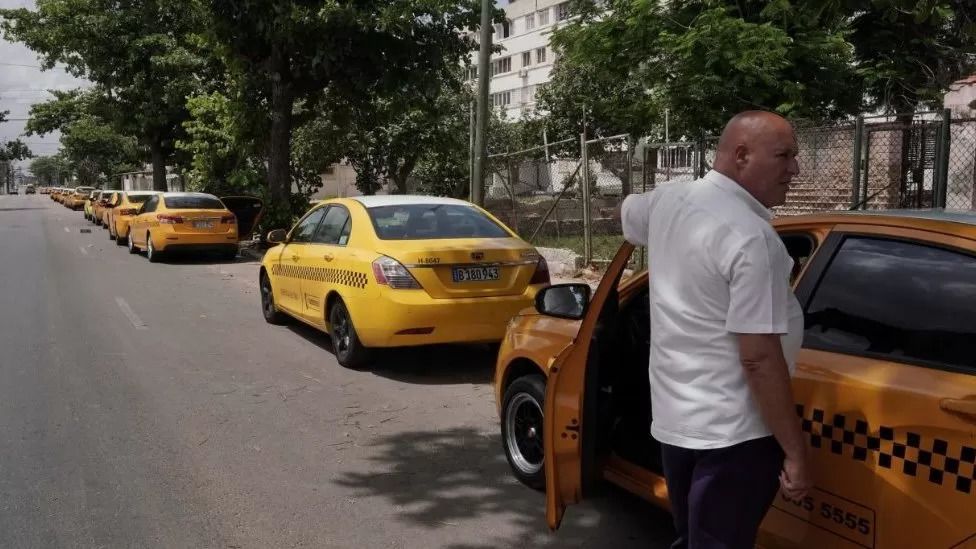
Cuba cancels May Day parade because of fuel shortages
Every year hundreds of thousands of people are bussed in from across the island to fill Havana's Revolution Square on International Workers' Day.
It is the first time since the 1959 revolution that the celebrations have been cancelled for economic reasons.
In recent weeks long queues have formed at petrol stations, with drivers often waiting for days.
Earlier this month, President Miguel Diaz-Canel said Cuba was only receiving two-thirds of the fuel it needs, adding that suppliers were failing to fulfil contractual obligations.
While Cuba has access to low-grade crude, the US-sanctioned island lacks the facilities to process it.
Deliveries of higher quality crude from Venezuela, Cuba's largest provider of fuel, have dropped by 50% in recent years.
Analysts say Venezuela is experiencing severe problems itself and finds it increasingly difficult to subsidise its socialist ally.
 The fuel shortages mean Havana drivers can end up waiting for days at petrol stations
The fuel shortages mean Havana drivers can end up waiting for days at petrol stations
The shortages have added to daily pressures faced by Cubans. According to Spain's El Pais newspaper, a typical monthly salary is $150-200 (£120-160), while a litre of cooking oil costs $30.
The government insists that its state-driven socialist model is best for the country and blames the problems on longstanding US sanctions.
Cuban authorities have traditionally mobilised huge resources to ensure the success of the May Day parade, transporting workers en masse to Havana.
Before this year, the event had only ever been cancelled in 2020 and 2021, because of the Covid pandemic.
Local events are expected to go ahead instead, with people marching on foot.
Ulises Guilarte de Nacimiento, the head of the Workers' Cuba's main trade union said on Tuesday such acts would highlight "the obstacles to the development programmes due to the ironclad economic blockade".










